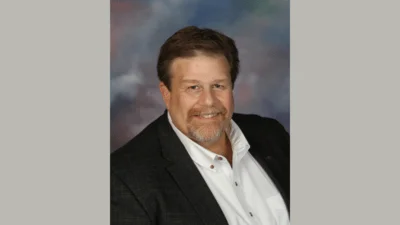State Representative Ryan Spain (il) | Representative Ryan Spain (R) 73rd District Deputy Republican Leader
State Representative Ryan Spain (il) | Representative Ryan Spain (R) 73rd District Deputy Republican Leader
Illinois' journey into the world of riverboat gambling began on February 7, 1990, when the state passed the Riverboat Gambling Act, making it the second state in the country to legalize this form of gambling. Governor James Thompson signed the legislation into law, paving the way for the development of riverboat casinos in Illinois.
Before the establishment of riverboat casinos, options for legal gambling in Illinois were limited. Bets on horse races had been legal since 1927, and lottery tickets could be purchased since 1974. The introduction of riverboat gambling aimed to boost the economies of Illinois' river towns, generate tax revenue, and create employment opportunities.
The first riverboat casino to open its doors in Illinois was the Alton Belle Casino, which welcomed its first patrons in September 1991. A three-deck boat with a capacity of 600 passengers, the Alton Belle Casino featured 296 slot machines and 22 gaming tables. Alton was granted the first of 10 original licenses issued by the Illinois Gaming Board.
Following the success of the Alton Belle Casino, several other riverboat casinos emerged across the state. The Par-A-Dice in Peoria launched in November 1991, followed by Casino Rock in Rock Island, The Empress in Joliet, and the Silver Eagle in Galena in 1992. Metropolis and Northern Star in Joliet joined the scene in 1993. The Peoria boat was later relocated to East Peoria, and both cities continued to benefit from the tax revenues generated by the casinos.
The Riverboat Gambling Act had some specific provisions. Riverboat casinos were only allowed to operate on water, and gambling was prohibited until the boats set sail. Additionally, a small admission fee was imposed on visitors. The legislation also established the Illinois Gaming Board, a five-member body appointed by Governor Thompson to oversee operations and evaluate license applicants.
Riverboat gambling quickly proved to be a lucrative venture for the state. In its first year, it generated $8 million in tax revenue, which grew to $54 million the following year. The success continued, with the total adjusted gross receipts for Illinois' 15 casinos reaching nearly $1.5 billion from October 2022 to September 2023. During the same period, tax allocations surpassed $400,000, with Rivers Casino in Des Plaines contributing over 37 percent of the total share and Grand Victoria in Elgin coming in second.
Over the years, gambling laws in Illinois have evolved. In 1999, a new legislation permitted riverboat gambling to continue even when the boats were docked. Then, in 2019, further changes allowed all riverboat casinos to move to dry land, opening up expansion opportunities in different parts of the state, including Chicago.
Today, the casino industry in Illinois faces stiff competition from other forms of gambling that have gained approval in recent years. The Video Gaming Act of 2009 has led to the licensing of over 8,400 locations in Illinois, offering video gaming terminals at various retail establishments, gas stations, and veterans' establishments. Additionally, sports wagering has experienced a surge since the passage of the Sports Wagering Act in 2019, with 13 sportsbooks currently operating in the state.
Illinois' foray into riverboat gambling has undoubtedly transformed the state's entertainment landscape. From its modest beginnings with the Alton Belle Casino to the thriving industry it is today, riverboat gambling has left a lasting impact on Illinois' economy, providing revenue, jobs, and a diverse range of gambling options for residents and visitors alike.






 Alerts Sign-up
Alerts Sign-up